IN THE THIRD JUDICIAL CIRCUIT OF FLORIDA
Administrative Order No.
2021-004
IN RE:IN RE: CIVIL CASE MANAGEMENT NO. 2021-004
IN THE CIRCUIT COURT OF THE THIRD JUDICIAL CIRCUIT,
IN AND FOR THE STATE OF FLORIDA
ADMINISTRATIVE ORDER No. 2021- 004
IN RE: CIVIL CASE MANAGEMENT
WHEREAS, on April 13, 2021, Florida Supreme Court Chief Justice Canady issued
Administrative Order SC20-23 Amendment (12)(1), setting forth case management and resolution
instructions and requiring each chief judge to issue administrative orders requiring presiding
judges in specifically defined civil cases to issue case management orders that contain deadlines
for completing certain pretrial matters and setting trial dates consistent with the time standards
specified in the Florida Rules of General Practice and Judicial Administration 2.250(a)(l)(B) for
the completion of civil cases.
WHEREAS, this administrative order is entered in accordance with the above referenced
SCAO and in the best interest of the Third Judicial Circuit in an effort to ensure the fair,
predictable, efficient, and timely disposition of civil cases in both county and circuit court.
NOW, THEREFORE, by the authority vested in me as the Chief Judge of the Third
Judicial Circuit, specifically, Article V, section 2( d) of the Florida Constitution, chapter 40.001 ,
and 43.26, Florida Statutes, and Florida Rule of Judicial Administration 2.215, it is therefore
ORDERED as follows:
1. There is established within the Third Judicial Circuit a Civil Case Management Plan
applicable to all civil cases to ensure the timely and efficient processing of civil cases
and timely resolution of all civil cases, both pre-existing and newly filed.
2. It is intended that the Civil Case Management Plan be implemented uniformly and
circuit wide within the Third Judicial Circuit.
3. The Civil Case Management Plan shall be followed as a model for the purpose of
establishing procedures and criteria for reviewing and determining whether each civil
case is to be considered complex, streamlined, or general.
4. Among other things, the Civil Case Management Plan (CMP) will require the presiding
judge to issue a case management order that will specify certain deadlines for service
of complaints, service of extensions, and adding new parties; deadlines for discovery,
resolution of motions, requirement for mediation, and the projected trail date.
Deadlines will be strictly enforced. The CMP shall also indicate that a firm trial date
will be ordered by the presiding judge when the case is at issue pursuant to Florida
Rule of Civil Procedure 1.440.
5. The procedures and time standards set forth in the model plan, or in any other written
plan approved by the chief judge, are intended to fac ilitate the timely, fair and effective
resolution of civil cases while ensuring the efficient use of court resources. The
procedures and time standards do not supplant any existing rule, statute, or law.
Neither this Administrative Order nor the Civil Case Management Plan shall be
construed as granting any rights not already provided for by rule, statute, or law.
6. Counsel for the parties and pro se individuals who are representing themselves in these
pending “civil cases”, whether in circuit court or county court civil divisions, shall
review the Supreme Court case management and resolution provisions contained in
AOSC20-23, Amendment (12)(1), as well as Fla. R. Jud. Admin 2.250 and 2.545.
Thereafter, they shall review their pending civil cases with the requirements of the
Supreme Court and this local administrative order in mind.
7. In AOSC20-23, Amendment (12)(1), the three categories of civil cases to be
considered are: complex cases, general cases, and streamlined cases. “Complex Civil
Cases” are defined as actions that have been or may be designated by court order as
complex under Fla. R. Civ. Pro. 1.201. Pursuant to AOSC20-23, Amendment (12)(1),
the undersigned has determined that “Streamlined Civil Cases” are those civil non-jury
actions that will be tried before a judge and “General Civil Cases” are those actions
that will be subject to a jury trial.
8. Since complex litigation is governed by the specific case management procedures in
Rule 1.201, and the provisions in AOSC20-23, Amendment (12)(1), do not control
issuance of such orders in those cases. Therefore, within 15 days of this Administrative
Order, counsel for the plaintiff in any pending complex case shall, as an alternative to
the other provisions in this order, send a letter to the presiding judge notifying the court
of the present status of the cause. If there is an existing case management order in effect
a copy shall be included for the judge to review.
9. Counsel for the parties and pro se individuals representing themselves in these cases
(complex cases) may believe that the unique circumstances presented in their cases
support the entry of a case management order tailored to the cause and agreed to by
the litigants rather than an order unilaterally issued by the presiding judge. Therefore,
the parties are encouraged to consult and confer in an effort to draft a mutually
acceptable Agreed Mandatory Civil Case Management Order for submission to the
court that addresses the mandatory deadlines in AOSC~0-23, Amendment (12)(1), and
moves the case to disposition in a timely fashion. This should be done as soon as
reasonably possible.
10. In any Agreed Mandatory Civil Case Management Order submitted pursuant to this
Administrative Order, the parties must address each requirement specified by
AOSC20-23, Amendment (12)(1), at Section III, G(l)(a)(ii) (page 18). The Agreed
Mandatory Civil Case Management Order shall be in substantially the same form
(Form Order 2-5, with exhibits) as the example found on the third circuit’s website at
www.thirdcircuitfl.org.
DONE AND ORDERED in chambers in Lake City, Columbia County, Florida, this 29th
day of April, 2021.
MARK E. FEAGLE, Chief Judge

